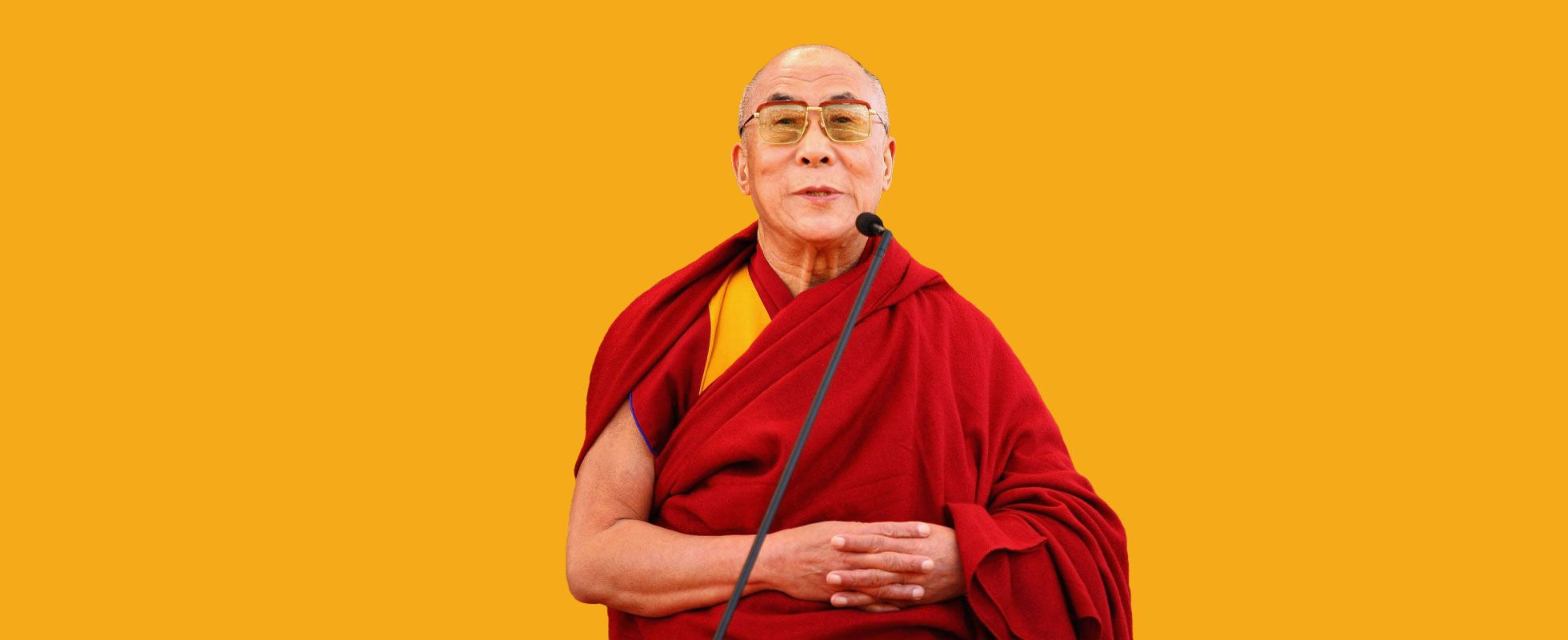Throughout his life, Tenzin Gyatso, His Holiness the 14th Dalai Lama, has been a source of inspiration and wisdom — not just for Tibetan Buddhists, but for people everywhere.
The Dalai Lama is the spiritual leader and monarch of Tibet. When he was just 2 years old, in 1937, Tenzin Gyatso was found to be the reincarnation of the previous Dalai Lama. All the Dalai Lamas are believed to be earthly manifestations of Avalokiteshvara, the bodhisattva embodying compassion, and the patron saint of Tibet. It’s believed the Dalai Lama is delaying their own attainment of nirvana in a constant reincarnation cycle to help ease suffering in others.
Peace and compassion are central tenets of the 14th Dalai Lama's life, and his commitment to them has made him an international icon. In 1989, he received a Nobel Peace Prize for his efforts to find a peaceful solution for the political unrest in Tibet. He has also earned more than 150 awards and honorary degrees for his continuing push toward nonviolence and universal compassion and understanding, and is known around the world for advocating for harmony between people and nations alike.
These 14 quotes are nuggets of wisdom the 14th Dalai Lama has imparted in an effort to fulfill his mission to end suffering. Think of them as an instruction manual for living a life of peace, happiness, and compassion.
True happiness comes from a sense of inner peace and contentment, which in turn must be achieved through the cultivation of altruism, of love and compassion and elimination of ignorance, selfishness, and greed.
Reason well from the beginning and then there will never be any need to look back with confusion and doubt.
If you want others to be happy, practice compassion. If you want to be happy, practice compassion.
True peace with oneself and with the world around us can only be achieved through the development of mental peace.
The more we care for the happiness of others, the greater our own sense of well-being becomes.
There is a saying in Tibetan that “at the door of the miserable rich man sleeps the contented beggar.” The point of this saying is not that poverty is a virtue, but that happiness does not come with wealth, but from setting limits to one’s desires, and living within those limits with satisfaction.
I try to treat whoever I meet as an old friend. This gives me a genuine feeling of happiness. It is the practice of compassion.
Inner peace is the key: If you have inner peace, the external problems do not affect your deep sense of peace and tranquility.
It is very important to generate a good attitude, a good heart, as much as possible. From this, happiness in both the short term and the long term for both yourself and others will come.
Old friends pass away, new friends appear. It is just like the days. An old day passes, a new day arrives. The important thing is to make it meaningful: a meaningful friend — or a meaningful day.
Anything that contradicts experience and logic should be abandoned.
Compassion and tolerance are not a sign of weakness, but a sign of strength.
Human happiness and human satisfaction must ultimately come from within oneself. It is wrong to expect some final satisfaction to come from money or from a computer.
The root of happiness is altruism — the wish to be of service to others.
Featured image credit: Craig Lovell/ Eagle Visions Photography/ Alamy Stock Photo
















